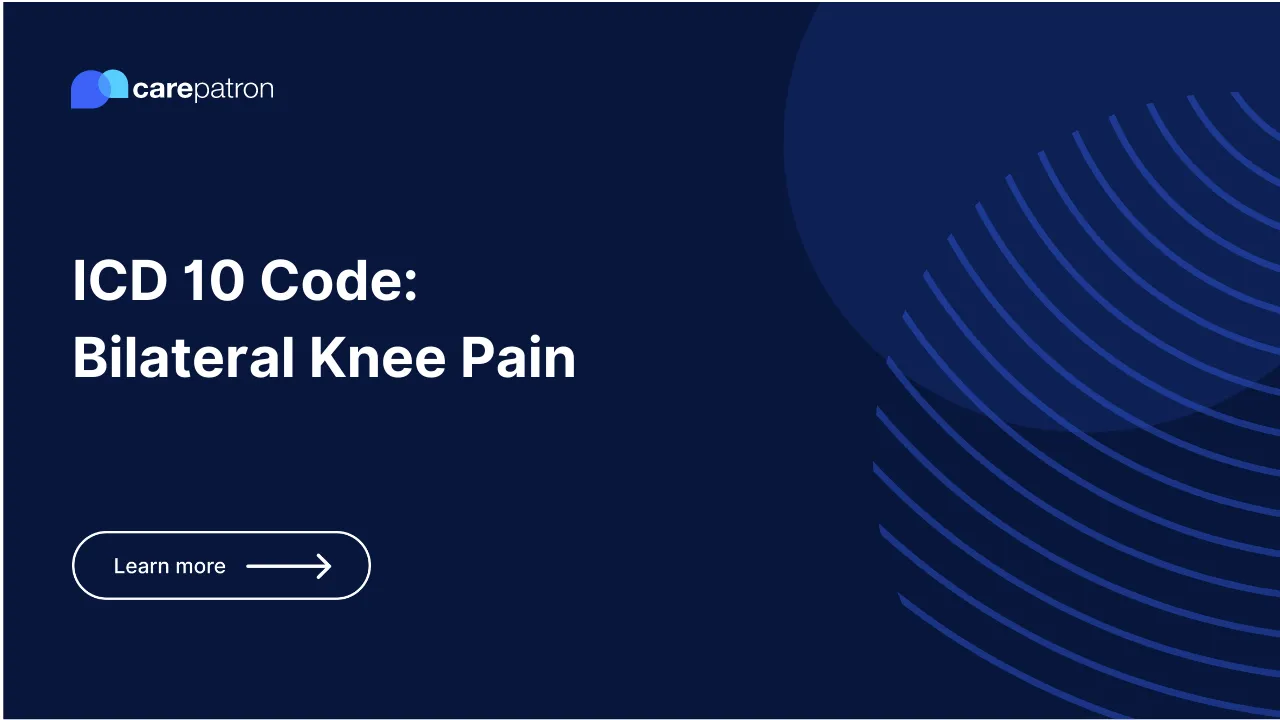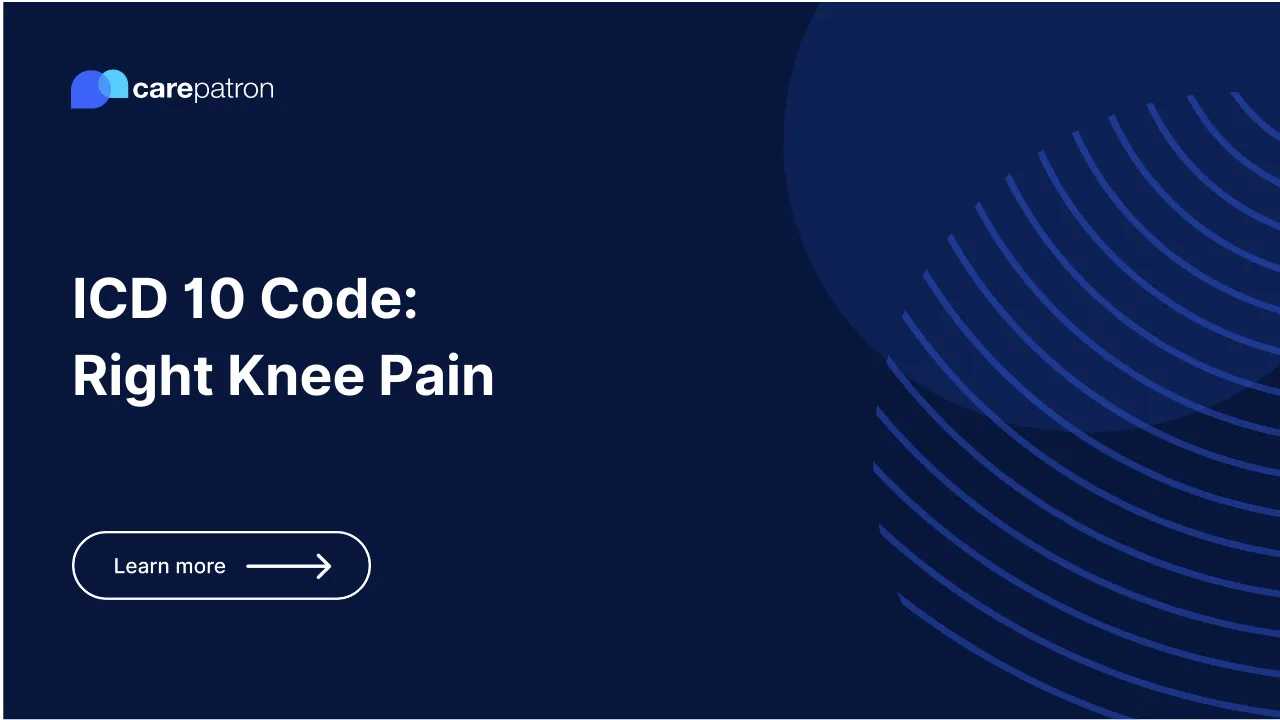Back Pain Unspecified ICD-10-CM Codes
Read this short guide and learn about back pain unspecified ICD codes you can use.

What back pain unspecified ICD codes can I use?
If you're seeking back pain unspecified ICD codes, you may be surprised to find that there are codes specifically designated for back pain. This concise list includes multiple ICD-10 codes encompassing various types of back pain resulting from specific issues such as compression of spinal nerve roots. However, please note that this list does not cover ICD-10 codes for underlying causes of back pain, such as myelopathy, spondylosis, degenerative disc diseases, and other complex conditions.
Here are the unspecified back pain-related ICD-10 codes you can use:
- M54.9 - Dorsalgia, unspecified
This ICD-10 code is meant to be used on a patient confirmed to have Dorsalgia. Dorsalgia is the term for back pain. This ICD-10 code encompasses anything pain-related for the back. Given that it’s an unspecified code, this can be for acute or chronic cases. It can also be for Dorsalgia in any location in the back.
- M54.50 - Low back pain, unspecified
This ICD-10 code is meant to be used on a patient confirmed to have pain in the lower back. In the context of this ICD-10 code, it is unspecified if the lower back pain is acute or chronic, nor is it specified where the pain is coming from in the lower back. This is the lone ICD-10 code that we were referring to earlier. It’s the only one with back pain in its name.
- M54.30 - Sciatica, unspecified side
This ICD-10 code is meant to be used on a patient confirmed to have Sciatica. Sciatica is the term used to describe pain in the back, hips, and the outer sides of our legs. This type of pain is caused by the spinal nerve root compression in the lower back, which is likely to happen because of disc degeneration. In the context of this ICD-10 code, the specific side of the back where the sciatica is located isn’t specified.
- M54.40 - Lumbago with sciatica, unspecified side
This ICD-10 code is meant to be used on a patient confirmed to have Lumbago, which is the term used for mild to severe pain in the lower back. Not only that, but the patient also has sciatica. Just like with Item 3, the specific side isn’t specified. This can’t be interchanged with M54.50 because this code has two problems in one, whereas M54.50 is just lower back pain in general. Lumbago is most commonly felt near the spine and may radiate to other areas like our groin and thighs.
- M54.10 - Radiculopathy, site unspecified
This ICD-10 code is meant to be used on a patient confirmed to have Radiculopathy, but the specific location isn’t specified. Radiculopathy is characterized by pain (sometimes a tingly kind) and numbness caused by a compressed or irritated spinal nerve root(s). It is commonly referred to as a pinched nerve. This nerve root compression can result from bone spurs, traumatic accidents, and disc-related problems.
Which of these back pain unspecified ICD codes are billable?
All the back pain-related unspecified ICD-10 codes mentioned above are valid and billable.
Clinical information for back pain:
Back pain is a prevalent medical issue that most people will encounter at some point in their lives, to varying degrees. The pain can manifest as a mild, dull sensation or as sharp and tingling discomfort. In some cases, the pain may even radiate to other areas of the back and extremities. Older individuals and those engaged in strenuous physical activities are more prone to experiencing back pain.
Back pain can be classified as either acute or chronic. Acute pain appears suddenly and lasts for a few hours, days, or weeks. On the other hand, chronic back pain persists for approximately three months or longer.
For individuals with mild back pain, it is reasonable to expect the pain to subside within a day or two. If it persists, it is advisable to consult healthcare providers to identify any underlying causes. The appropriate treatment will depend on the findings, ranging from rest and applying hot or cold compresses to surgical intervention for severe cases.
Commonly asked questions
No. All unspecified ICD codes are valid and unbillable. If you encounter an ICD code like M54, which is just titled Dorsalgia, then that is invalid and unbillable. If it says unspecified, it is valid and unbillable.
Back pain likely results from a specific problem, so healthcare professionals and providers will conduct physical examinations involving specific techniques, blood tests, electromyography, and imaging tests.
It depends on the severity and what’s causing it. Some might just need rest and exercise. Some might need to use hot/cold compresses and medication (e.g., pain relievers or muscle relaxants). Some might have to take physical therapy. For extreme cases, surgery is the best option.


.png)




.webp)
.webp)
.webp)
.webp)
.webp)
.webp)
.webp)
.webp)
.webp)
.webp)
.webp)
.webp)
.webp)
.webp)
.webp)
.webp)
.webp)
.webp)
%2520(1).webp)
.webp)
.webp)
.webp)
.webp)
.webp)
.webp)
.webp)
.webp)
.webp)
.webp)
.webp)
.webp)
.webp)
.webp)
.webp)
%2520(1).webp)
.webp)
.webp)
.webp)
.webp)
.webp)
.webp)
.webp)
.webp)
.webp)
.webp)
.webp)
.webp)
.webp)
.webp)
.webp)
.webp)
.webp)
.webp)
.webp)
.webp)
.webp)
.webp)
.webp)
.webp)
.webp)
.webp)
.webp)
.webp)
.webp)
.webp)
.webp)
.webp)
.webp)

.webp)
.webp)
.webp)
.webp)
.webp)













.webp)
.webp)




.webp)


